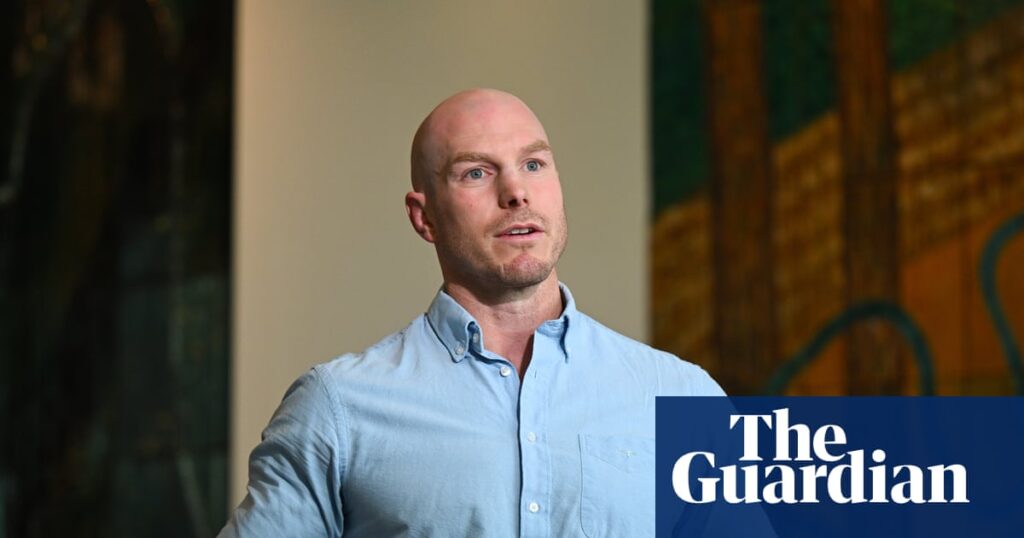
Independent ACT senator and former Wallabies captain David Pocock has been expelled from the Australian Parliament Sports Club following his outspoken criticism of its sponsorship ties with the gambling industry. The decision, communicated to Pocock on Thursday night, accused him of politicizing the organization and resulted in his removal from group communications regarding club events.
The club confirmed on Friday that it had indeed sent messages to Pocock, citing his public criticism as inappropriate for a member. This move follows Pocock’s vocal opposition to the gambling lobby’s involvement with the federal parliament’s sports club, which he alleged was a strategy to gain access to decision-makers and reinforce the association between wagering and sports.
Background and Reactions
Last month, Pocock, alongside other crossbench MPs, criticized the sponsorship by Responsible Wagering Australia (RWA), accusing them of “shamelessly” associating with a suicide prevention running group hosted by the club. The RWA has denied these allegations. The club, on its part, maintains that the events are purely social, allowing politicians and staff to unwind during parliamentary sessions, with sponsors merely covering costs.
Pocock expressed his disappointment to Guardian Australia, stating, “Being kicked out of the club for raising concerns around gambling lobbyists buying access to the club shows the influence vested interests have here in parliament and just how normalised this has become.”
Club’s Defense and Political Implications
Andy Turnbull, the club’s chief executive, confirmed the ban on Pocock, emphasizing that the club’s purpose is non-political. During a Senate estimates hearing, Pocock questioned the prime minister’s involvement as chair of the club, given its registration as a lobby group representing gambling, alcohol, and fossil fuels industries.
Prime Minister Anthony Albanese responded on Friday morning, accusing Pocock of seeking publicity and commending the club for its charitable contributions. “The amount of time I’ve spent on the Australian Parliament Sports Club this year is zero,” Albanese remarked. “I have participated in zero events in terms of sports. Just because I’m a bit busy.”
Club’s Sponsorship Controversy
Turnbull defended the club’s sponsorship arrangements, arguing that business is not discussed on the sports pitches. “Firstly, there is an unwritten rule that no one talks business on the sports pitches. It’s the only time the parliamentarians get any time to relax and not do business, and I work very hard to ensure this is the case,” he stated.
He further argued that larger organizations, like the RWA, are less likely to misuse the club’s platform. RWA’s chief executive, Kai Cantwell, supported this view, stating that their participation was purely for exercise and socializing, not lobbying. “RWA’s work on regulation and harm reduction happens through the proper parliamentary and regulatory processes, not on the sporting field,” Cantwell said.
Legal and Ethical Considerations
The controversy gained further attention when the ABC’s Four Corners program aired footage of a club-organized football match, highlighting RWA’s presence among politicians. Subsequently, Turnbull sought advice from the Attorney-General’s Department, which concluded that the club did not need to be registered as a lobbyist, as it was not actively lobbying for sponsors.
Despite this, the Centre for Public Integrity’s executive director, Catherine Williams, criticized the club’s operations, stating it provided “an invaluable opportunity for monied interests to build relationships with members of parliament and their staff.”
Looking Forward
The expulsion of David Pocock from the Australian Parliament Sports Club underscores the ongoing debate over the influence of vested interests within political circles. As this story unfolds, it raises questions about the ethical boundaries of sponsorships and the role of social clubs in political environments. The implications of this controversy may prompt further scrutiny of sponsorship practices and the potential need for clearer regulations to ensure transparency and fairness in political engagements.






